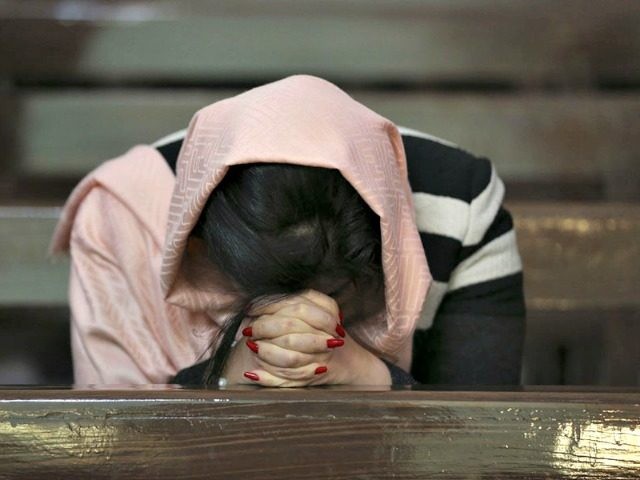Mary Anne Sause, a Kansas woman who claims police violated her First Amendment right to the free exercise of religion when they commanded her to stop praying, will have another day in court after the Supreme Court of the United States ordered a lower court Thursday to reconsider her lawsuit.
According to Sause’s lawsuit against the Louisburg, Kansas Police Department, two officers entered her home in 2013 to investigate a noise complaint, then threatened to take her to jail. Sause, a devout Roman Catholic, asked for permission to pray before she was apprehended. While one officer obliged, the other alleged mocked her and demanded she get up off her knees.
The exact circumstances of how the police came to be in Sause’s home, whether that entry was a violation of the Fourth Amendment’s search and seizure protections (which Sause is not suing over), and what precisely transpired inside have never been conclusively established in court. However, both the U.S. District Court in Kansas and the U.S. Court of Appeals for the Tenth Circuit ruled against Sause, found that the officers were entitled to qualified immunity — a protection given to government officials in the good faith performance of their duties — and disallowed Sause’s claim under the First Amendment’s Free Exercise Clause.
On Thursday, the Supreme Court, in an unsigned unanimous order, asked the Tenth Circuit to reconsider both the officers’ qualified immunity and Sause’s First Amendment claim based on that court’s failure to consider the intertwined nature of the potential Forth and First Amendment violations in the case.
The Supreme Court, with this brief per curiam opinion, did not come close to deciding the underlying case, which the justices framed as follows:
There can be no doubt that the First Amendment protects the right to pray. Prayer unquestionably constitutes the “exercise” of religion. At the same time, there are clearly circumstances in which a police officer may lawfully prevent a person from praying at a particular time and place. For example, if an officer places a suspect under arrest and orders the suspect to enter a police vehicle for transportation to jail, the suspect does not have a right to delay that trip by insisting on first engaging in conduct that, at another time, would be protected by the First Amendment.
Kelly Shackelford, President and CEO of First Liberty, the religious freedom-focused non-profit law firm that is representing Sause, applauded the Court’s decision. “The Supreme Court’s decision is a just outcome for Ms. Sause and a victory for religious liberty,” she said in a statement, “No American citizen should ever be ordered by government officials not to pray in their own home.”
The case is Sause v. Bauer, No. 17–742 in the U.S. Supreme Court.

COMMENTS
Please let us know if you're having issues with commenting.